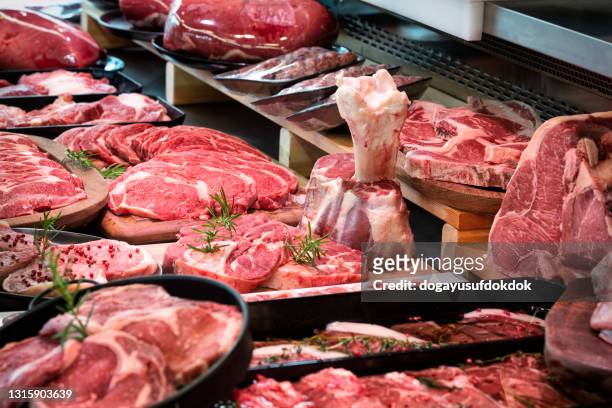Why Purchasing at a Farmers Market Supports Local Farmers and Your Neighborhood
Purchasing at a farmers market offers as a concrete ways of supporting local farmers while simultaneously bolstering the financial textile of your neighborhood. Think about the impact this has on local economic situations and food systems.
Financial Benefits of Farmers Markets

Farmers markets substantially contribute to neighborhood economic situations by promoting straight sales in between consumers and manufacturers. This direct transaction design eliminates middlemans, enabling farmers to retain a bigger share of the profits. This increased profits empowers regional farmers to reinvest in their operations, buy far better devices, and boost agricultural methods. Such reinvestment not only improves performance but additionally sustains regional farming jobs.
Moreover, farmers markets promote financial task within the surrounding community. By drawing in customers that may also purchase from neighboring organizations, these markets help to create a lively neighborhood ecological community. The influx of consumers motivates foot website traffic, which benefits dining establishments, coffee shops, and shops, eventually leading to a multiplier impact that enhances the general economic climate.
In addition, farmers markets usually function as a system for small business owners and craftsmens, allowing them to display and offer their items. This diversification of neighborhood offerings can enhance area identification and pride. Moreover, lots of markets approve alternate forms of payment, such as food stamps or coupons, ensuring that fresh fruit and vegetables is accessible to a more comprehensive group, therefore promoting economic inclusivity. On the whole, the financial benefits of farmers markets expand much beyond straight sales, cultivating a resistant and durable local economy.
Freshness and High Quality of Produce
The unmatched freshness and top quality of produce located at farmers markets are essential aspects that attract consumers looking for healthy and tasty choices. Unlike grocery store offerings, which often go through lengthy transport times and storage periods, the fruits, vegetables, and various other items available at farmers markets are usually collected simply days and even hours before being offered. This immediacy makes sure that the nutrients, taste, and texture are preserved, offering a remarkable cooking experience.
Furthermore, farmers markets typically feature seasonal produce, permitting customers to appreciate fruits and veggies at the height of their ripeness. Local farmers take satisfaction in their expanding methods, typically utilizing sustainable approaches that improve the high quality of their produce.
The direct link in between the farmer and the consumer at these markets cultivates openness relating to agricultural techniques, even more assuring consumers of the quality of their acquisitions. As a result, customers can confidently sustain their health while taking pleasure in the rich tastes that originate from local, fresh gathered produce.
Structure Community Relationships
Area connections flourish at farmers markets, where neighborhood producers and customers take part in purposeful interactions. farmers market edwardsville il. These markets offer as dynamic area hubs, cultivating connections that expand beyond plain transactions. Customers have the distinct possibility to meet the really farmers who expand their food, helping with a much deeper appreciation for agricultural techniques and the difficulties encountered by local producers
This straight engagement develops trust fund and loyalty, allowing customers to support the extremely people who add to their neighborhood's economy and vitality. These communications usually lead to the sharing of knowledge regarding seasonal fruit and vegetables, food preparation pointers, and lasting practices, enriching the neighborhood's cumulative understanding of food systems.
In addition, farmers markets create a feeling of belonging, as people from varied backgrounds come together to commemorate regional culture and shared values. Inevitably, buying at farmers markets is not just about acquiring food; it is concerning nurturing area bonds that contribute to a flourishing and durable local environment.
Supporting Lasting Practices
At farmers markets, sustainable practices are not just urged however proactively advertised, producing a platform for ecologically conscious consumption. These markets usually feature regional farmers who use chemical-free farming methods, which considerably lower the reliance on artificial chemicals and fertilizers. By focusing on organic farming, they contribute to much healthier communities and promote dirt wellness, guaranteeing that the land can sustain agricultural methods for future generations.
Furthermore, lots of farmers at these markets embrace lasting practices such as crop turning and permaculture techniques, which boost biodiversity and decrease dirt erosion. The emphasis on seasonal produce additionally decreases the carbon impact related to transferring food over fars away, cultivating a more lasting food system.

Sustaining Neighborhood Food Systems

Supporting local food systems additionally lowers the carbon footprint associated with carrying food over fars away. When consumers over at this website acquire directly from regional farmers, they reduce the requirement for comprehensive supply chains, thereby saving energy and sources. Additionally, farmers markets often encourage sustainable farming techniques, as regional producers are more probable to prioritize ecologically friendly techniques to attract their neighborhood.
Moreover, by spending in regional food systems, consumers add to the durability of their areas. A robust local food network can endure financial fluctuations and outside stress, guaranteeing a secure food supply. Inevitably, shopping at farmers markets visit our website not just supports neighborhood farmers however additionally improves the total wellness and sustainability of the neighborhood's food ecological community.
Verdict
Shopping at farmers markets plays a crucial function in improving and sustaining neighborhood farmers community strength. The straight partnership in between customers and local manufacturers not only makes sure accessibility to fresh, top notch food however additionally enhances regional food systems.
Purchasing at a farmers market offers as a tangible ways of supporting local farmers while simultaneously boosting the economic fabric of your community. By focusing on regional sourcing, farmers markets assist keep local agricultural diversity and advertise the intake of seasonal fruit and vegetables, which in turn strengthens local economic situations.
Eventually, purchasing at farmers markets not only sustains local farmers yet additionally enhances the overall visit their website health and wellness and sustainability of the neighborhood's food ecological community. (farmers market edwardsville il)
Purchasing at farmers markets plays a vital function in boosting and sustaining regional farmers area strength. The direct relationship between consumers and local manufacturers not just makes certain access to fresh, top notch food however also strengthens neighborhood food systems.